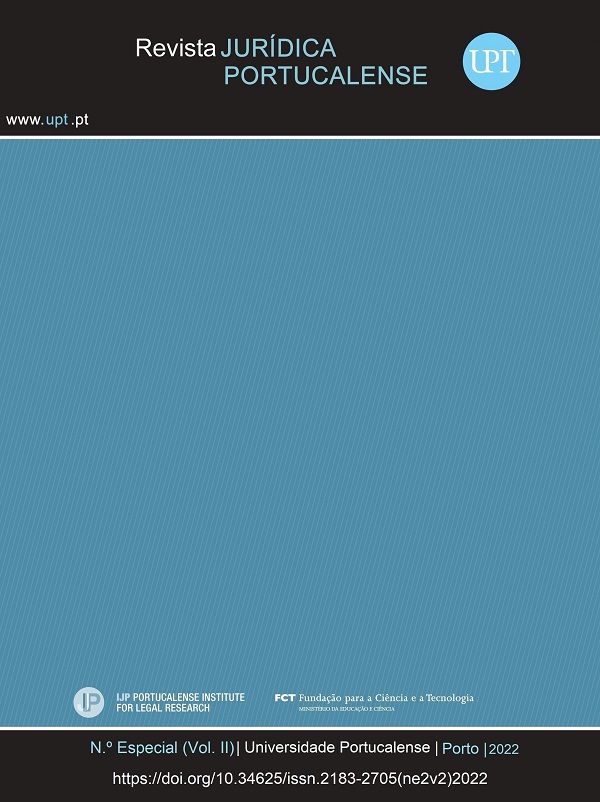New Challenge in International Arbitration: On-Line Hearings
Mots-clés :
Online hearing; International arbitration; Arbitration; Alternative dispute resolution; International Chamber of Commerce; The London Court of International Arbitration; Istanbul Arbitration Centre.Résumé
After the outbreak of Covid-19 pandemic, to use the technological tools in judgement process has become a current issue. Particularly in arbitration, on-line hearings have come into prominence. Many of international arbitration centers issued regulations on on-line hearings since April 2020. ICC, CAS, LCIA and ISTAC may be regarded among these. Especially, ICC and ISTAC issued detailed rules on on-line hearings which include the conduct of the hearing, confidentiality of arbitration, equality of arms etc. These regulations and the attitude of international arbitration centers shows the tendency on behalf of on-line hearings during the pandemic and the post-pandemic period. When taking into consideration saving on time and cost saving qualifications of on-line hearings, it is thought that it will continue to be a good option for conducting hearings in arbitration. However, it must be kept in mind that both parties and the arbitral tribunal should exercise due diligence in conducting arbitration process to provide cyber security.
Références
Kaufmann-Kohler, G. Online Dispute Resolution and its Significance for International Commercial Arbitration, Global Reflections on International Law, Commerce and Dispute Resolution Liber Amicorum in honour of Robert Briner ICC Publishing, Publication 693, [viewed date:20.04.2021]. Available from www.iccbooks.com.
Meltzer, C.R. From Conference Rooms to Chat Rooms: The Need to Protect Confidentiality in Online Mediation. The Ohio State Journal on Dispute Resolution. Volume:11. Issue: 1. 1-24. ISSN 1046-4344.
Scherer, M.; Schwarz, F.; Ortner, H.; Jensen, J.O. In a ‘First’ Worldwide, Austrian Supreme Court Confirms Arbitral Tribunal’s Power to Hold Remote Hearings Over One Party’s Objection and Rejects Due Process Concerns. Kluwer Arbitration Blog, October 24, 2020. [viewed date:20.04.2021]. Available from < http://arbitrationblog.kluwerarbitration.com/2020/10/24/in-a-first-worldwide-austrian-supreme-court-confirms-arbitral-tribunals-power-to-hold-remote-hearings-over-one-partys-objection-and-rejects-due-process-concerns/?print=print>
Scherer, M. Artificial Intelligence and Legal Decision-Making: The Wide Open?”, Journal of International Arbitration, 36, No.5, (2019). pp. 539-573. ISSN 2212-182X.
Legg, M. The Covid-19 Pandemic, The Courts and Online Hearings: Maintaining Open Justice, Procedural Fairness and Impartiality, Forthcoming (2021) 49 Federal Law Review [2020] UNSWLRS 46. pp. 1-24. ISSN 1444-6928.
Meltzer, C.R. From Conference Rooms to Chat Rooms: The Need to Protect Confidentiality in Online Mediation. The Ohio State Journal on Dispute Resolution. Volume:11. Issue: 1. 1-24. ISSN 1046-4344.
Özdemir Kocasakal, H.: Elektronik Sözleşmelerden Doğan Uyuşmazlıkların Çözümünde Uygulanacak Hukukun ve Yetkili Mahkemenin Tespiti. Vedat Kitapçılık, 2003, ISBN 975924724-0.
Philippe, M. Offline or Online? Virtual Hearing or ODR?. Kluwer Arbitration Blog, April 26,2020 [viewed date: 25.04.2021]. Available from: <http://arbitrationblog.kluwerarbitration.com/2020/04/26/offline-or-online-virtual-hearings-or-odr/>.
Shope, M.L. The International Arbitral Institution Response to COVID-19 and Opportunities for Online Dispute Resolution. 13 CONTEMP. Asia ARB. J. 67 (2020). Pp. 67-84. ISSN 1999-9747.
Singer, D.C. Arbitration Privacy and Confidentiality In The Age of (Coronavirus) Technology. Alternatives to the High Cost of Litigation. V:38, No:7, July/August 2020, 107-108. ISSN 1549-4381.
Van den Heuvel, E. Online Dispute Resolution As a Solutıon to Cross-Border E-Disputes An Introductıon to ODR. [viewed date: 22.02.2021). Available from <http://www.oecd.org/digital/consumer/1878940.pdf >.
Ziemblicki, B. Going Online - Is The World Ready to Replace Litigation With Online Dispute Resolution Mechanisms?. Wroclaw Review of Law, Administration & Economics, Vol.5:2 (2015).pp. 40-51. ISSN 2084-1264.
Téléchargements
Publiée
Comment citer
Numéro
Rubrique
Licence
Authors who published in the journal agree to the following terms:
- The Authors grant the Journal the right of first publication, and other non-exclusive publishing rights, licensed under the Creative Commons Attribution License which allows the sharing of work with recognition of its initial publication in this journal.
- Authors are able to take on additional contracts separately, non-exclusive distribution of the version of the paper published in this journal (ex .: publish in an institutional repository or as a chapter in a book), with an acknowledgement of its initial publication in this journal.
- Authors are permitted and encouraged to post and distribute their work online (eg .: in institutional repositories or on their website) at any point before or during the submission process, as it can lead to productive exchanges, as well as increase the impact and the citation of published work (See The Effect of Open Access).
RJP does not apply submission, publication or any other fees of any nature. Its articles are open access, with the goal of disseminating scientific knowledge and the debate of legal topics in the area of Legal Sciences.






